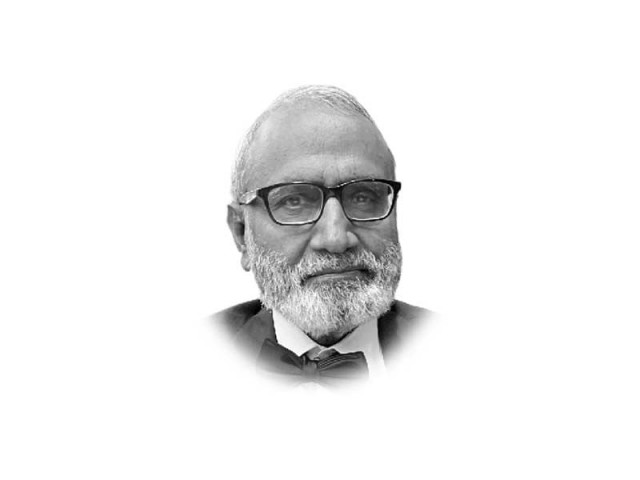Iqbal on the defence of India
Iqbal’s Allahabad address is landmarked in Pakistan history for the demarcation of the territory for the Muslim nation

Iqbal’s Allahabad address in 1930 is landmarked in Pakistan’s history for the demarcation of the territory for the Muslim nation. It is rich in the analysis of why Indians did not constitute a single, unified nation. A separate Muslim nation was a reality justified by religion, culture, history and geographical contiguity. Interestingly, he also presented a strategic case that helps understand some ongoing debates on the subject. As he put it, “the life of Islam as a cultural force in this country very largely depends on its centralisation in a specified territory. This centralisation of the most living portion of the Muslims of India, whose military and police service has, notwithstanding unfair treatment from the British, made the British rule possible in this country, will eventually solve the problem of India as well as of Asia.” With “full opportunity of development…. the North-West Indian Muslims will prove the best defenders of India against a foreign invasion.” Indeed, they were already performing this task. With 56% of the population in Punjab, Muslims contributed 62% of the total Indian army. Forces in NWFP and Balochistan were in addition. Consolidating the three provinces and Sindh into a Muslim state was “in the best interests of India and Islam.” India would be secure and Islam would have “an opportunity to rid itself of the stamp that Arabian Imperialism was forced to give it, to mobilize its law, its education, its culture, and to bring them into closer contact with its own original spirit and with the spirit of modern times.”
The Simon Commission on the federal question argued for continued Imperial control of the Indian army, as it lacked Indians in senior command positions. Captain was the highest rank reached by some 39 of them. Not all went through the rigorous training at Sandhurst. Most were commissioned during World War I. Iqbal quizzed: “Who is responsible for the present state of things? Is it due to some inherent incapacity of our martial races or to the slowness of the process of military training? The military capacity of our martial races is undeniable. The process of military training may be slow as compared to other processes of human training. I am no military expert to judge this matter. But as a layman I feel that the argument, as stated, assumes the process to be practically endless. This means perpetual bondage for India.”
Iqbal challenged the Simon Commission for giving “extraordinary importance to the question of India’s land frontier, but [making] only passing references to its naval position. India has doubtless had to face invasions from her land frontier; but it is obvious that her present masters took possession of her on account of her defenceless sea coast. A self-governing and free India, will, in these days have to take greater care of her sea coast than her land frontiers. I have no doubt that if a Federal Government is established, Muslim federal states will willingly agree, for purposes of India’s defence, to the creation of neutral Indian military and naval forces. Such a neutral military force for the defence of India was a reality in the days of Mughal Rule. Indeed in the time of Akbar the Indian frontier was, on the whole, defended by armies officered by Hindu generals. I am perfectly sure that the scheme of a neutral Indian army, based on a federated India, will intensify Muslim patriotic feeling, and finally set at rest the suspicion, if any, of Indian Muslims joining Muslims from beyond the frontier in the event of any invasion.”
Published in The Express Tribune, November 11th, 2022.
Like Opinion & Editorial on Facebook, follow @ETOpEd on Twitter to receive all updates on all our daily pieces.














COMMENTS
Comments are moderated and generally will be posted if they are on-topic and not abusive.
For more information, please see our Comments FAQ